-
 bitcoin
bitcoin $87959.907984 USD
1.34% -
 ethereum
ethereum $2920.497338 USD
3.04% -
 tether
tether $0.999775 USD
0.00% -
 xrp
xrp $2.237324 USD
8.12% -
 bnb
bnb $860.243768 USD
0.90% -
 solana
solana $138.089498 USD
5.43% -
 usd-coin
usd-coin $0.999807 USD
0.01% -
 tron
tron $0.272801 USD
-1.53% -
 dogecoin
dogecoin $0.150904 USD
2.96% -
 cardano
cardano $0.421635 USD
1.97% -
 hyperliquid
hyperliquid $32.152445 USD
2.23% -
 bitcoin-cash
bitcoin-cash $533.301069 USD
-1.94% -
 chainlink
chainlink $12.953417 USD
2.68% -
 unus-sed-leo
unus-sed-leo $9.535951 USD
0.73% -
 zcash
zcash $521.483386 USD
-2.87%
How secure is BCH? Are there any potential risks?
Bitcoin Cash's security, while robust due to its hashing algorithm and mining power, faces threats like 51% attacks, code vulnerabilities, exchange hacks, and user errors (weak passwords, phishing). Strong security practices are crucial for BCH users.
Mar 10, 2025 at 06:40 pm

- Bitcoin Cash (BCH) security relies on its blockchain's cryptographic hash function and the computational power of its miners.
- While generally considered secure, BCH faces risks similar to other cryptocurrencies, including 51% attacks, vulnerabilities in its codebase, and exchange hacks.
- User security is also a factor, with risks stemming from weak passwords, phishing scams, and malware.
- Understanding these risks and implementing appropriate security measures is crucial for BCH users.
Bitcoin Cash, a fork of Bitcoin, inherits much of its security model. Its security primarily rests on its blockchain’s robust cryptographic hashing algorithm (SHA-256). This makes it computationally infeasible to alter past transactions or create fraudulent ones. The security is further enhanced by the computational power dedicated to mining BCH, a process that verifies and adds new blocks to the blockchain. A larger mining network generally means greater resistance to attacks.
Potential Risks Associated with BCH:Despite its inherent security features, BCH isn't immune to potential risks. These risks can be categorized into several areas.
1. 51% Attacks: A 51% attack occurs when a single entity or group controls more than half of the network's hashing power. This gives them the ability to manipulate the blockchain, potentially reversing transactions or creating double-spending opportunities. While unlikely due to the significant hashing power, it remains a theoretical threat.
2. Code Vulnerabilities: Like any software, BCH's codebase may contain vulnerabilities that malicious actors could exploit. These vulnerabilities could range from minor bugs to critical flaws allowing for significant security breaches. Regular audits and updates are crucial to mitigate this risk.
3. Exchange Hacks: A significant portion of BCH is held on cryptocurrency exchanges. These exchanges are potential targets for hackers, and a successful breach could lead to the loss of user funds. Choosing reputable and secure exchanges is vital for minimizing this risk.
4. User-Side Risks:- Weak Passwords: Using weak or easily guessable passwords for your BCH wallets significantly increases the risk of unauthorized access.
- Phishing Scams: Phishing attacks attempt to trick users into revealing their private keys or seed phrases. These attacks often mimic legitimate websites or communication channels.
- Malware: Malicious software can infect devices and steal private keys or monitor transactions, allowing attackers to gain control of BCH holdings. Using reputable antivirus software and being cautious about downloading files are essential precautions.
- Hardware Wallet Malfunctions: While hardware wallets offer superior security, they are not foolproof. Potential risks include device failure, physical theft, and vulnerabilities in the device's firmware.
Several strategies can be employed to enhance the security of your BCH holdings.
- Use strong and unique passwords: Employ a password manager to generate and securely store complex passwords for all your cryptocurrency accounts.
- Enable two-factor authentication (2FA): 2FA adds an extra layer of security by requiring a second verification method, typically a code sent to your phone or email.
- Be wary of phishing attempts: Always verify the authenticity of websites and emails before entering sensitive information.
- Use reputable exchanges: Choose well-established exchanges with a strong security track record.
- Use a hardware wallet: Hardware wallets store your private keys offline, offering significantly enhanced security compared to software wallets.
- Keep your software updated: Regularly update your wallet software and operating system to patch any known vulnerabilities.
- Diversify your holdings: Don't keep all your BCH in one place. Spread your holdings across multiple wallets and exchanges to mitigate the impact of a single security breach.
A: Both BCH and Bitcoin rely on similar cryptographic principles. The relative security depends on factors like the size and health of their respective mining networks and the robustness of their codebases. There isn't a definitive answer as to which is inherently "more secure."
Q: What happens if a 51% attack on BCH is successful?A: A successful 51% attack could allow an attacker to reverse transactions, create double-spending opportunities, and potentially disrupt the network's functionality. The extent of the damage would depend on the attacker's goals and the network's response.
Q: How can I protect my BCH from phishing scams?A: Be cautious of unsolicited emails or messages requesting personal information. Always verify the legitimacy of websites and emails before clicking links or entering sensitive information. Look for secure connections (HTTPS) and official communication channels.
Q: Are hardware wallets completely secure?A: While hardware wallets are significantly more secure than software wallets, they are not entirely immune to risks. Physical theft, device malfunctions, and potential firmware vulnerabilities remain possibilities. Proper handling and regular updates are crucial.
Q: What should I do if I suspect my BCH has been compromised?A: Immediately change your passwords, revoke any compromised API keys, and contact the relevant exchanges or wallet providers. Monitor your transactions closely and report any suspicious activity. Consider seeking professional assistance if necessary.
Disclaimer:info@kdj.com
The information provided is not trading advice. kdj.com does not assume any responsibility for any investments made based on the information provided in this article. Cryptocurrencies are highly volatile and it is highly recommended that you invest with caution after thorough research!
If you believe that the content used on this website infringes your copyright, please contact us immediately (info@kdj.com) and we will delete it promptly.
- Bitcoin Traders Secure Partial Profits as Market Hovers Near $68K Amidst Range Dynamics
- 2026-02-13 07:40:02
- Crypto ETFs Gain Lasting Appeal as Investment Landscape Evolves
- 2026-02-13 06:50:01
- Enlivex Therapeutics' RAIN Token Makes a Big Splash on Kraken Exchange, Cementing Digital Strategy
- 2026-02-13 07:30:02
- Espresso Token Unveils $275M Launch, Navigates Volatile Markets, and Eyes Global Expansion
- 2026-02-13 07:20:01
- Coinbase Faces Trading Disruption on Key Earnings Day, Highlighting Platform Vulnerabilities
- 2026-02-13 07:20:01
- WhiteBIT Coin's Tightrope Walk: $51.74 USD Support Level Steals the Show
- 2026-02-13 07:15:01
Related knowledge
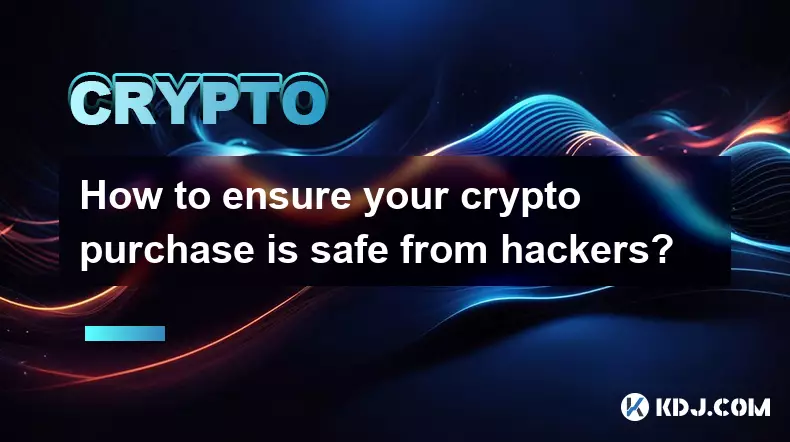
How to ensure your crypto purchase is safe from hackers?
Jan 28,2026 at 11:19pm
Secure Wallet Selection1. Choose hardware wallets for long-term holdings—devices like Ledger and Trezor isolate private keys from internet-connected s...
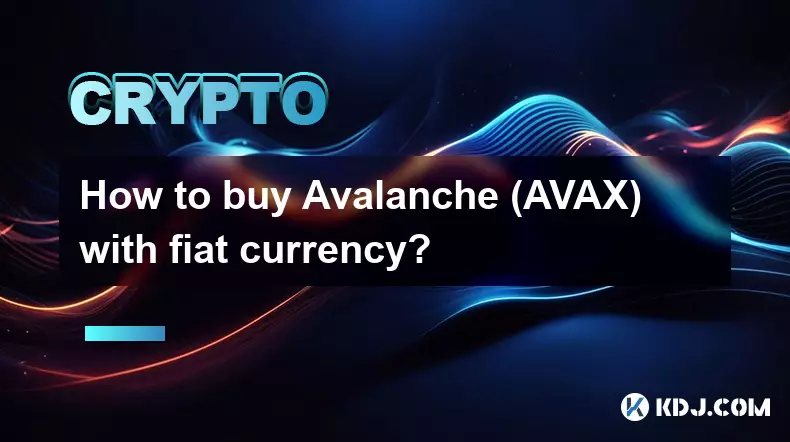
How to buy Avalanche (AVAX) with fiat currency?
Jan 29,2026 at 12:40pm
Choosing a Reliable Exchange Platform1. Identify exchanges licensed in your jurisdiction that support AVAX trading pairs with major fiat currencies li...
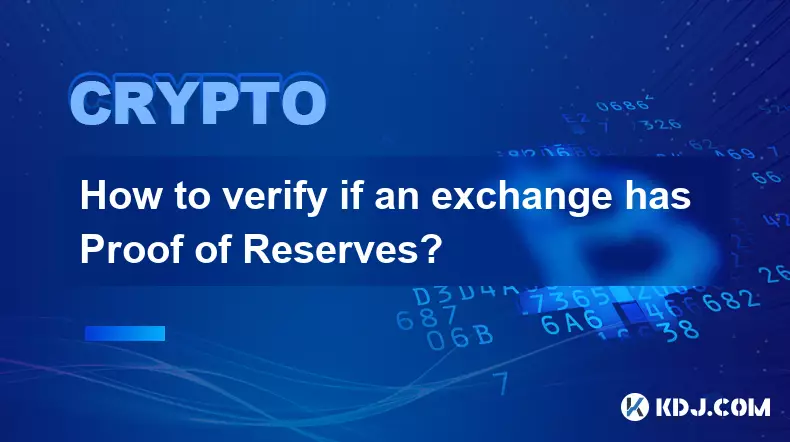
How to verify if an exchange has Proof of Reserves?
Jan 30,2026 at 06:39am
Understanding Proof of Reserves1. Proof of Reserves (PoR) is a cryptographic audit mechanism that demonstrates an exchange holds sufficient on-chain a...
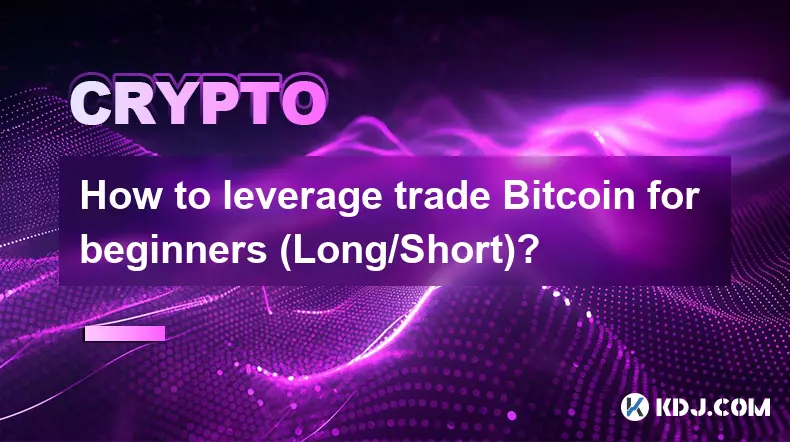
How to leverage trade Bitcoin for beginners (Long/Short)?
Jan 29,2026 at 03:19pm
Understanding Bitcoin Price Movements1. Bitcoin’s price is heavily influenced by macroeconomic indicators such as interest rate decisions, inflation d...
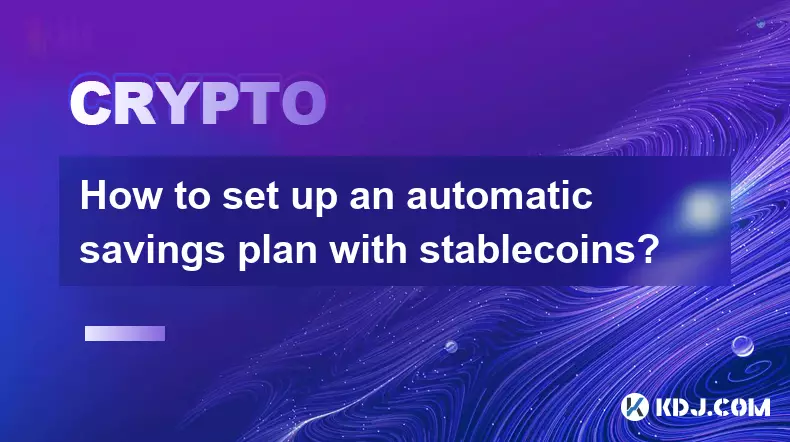
How to set up an automatic savings plan with stablecoins?
Jan 29,2026 at 06:39am
Understanding Stablecoin Savings Mechanics1. Stablecoins are digital assets pegged to fiat currencies like the US dollar, designed to minimize volatil...
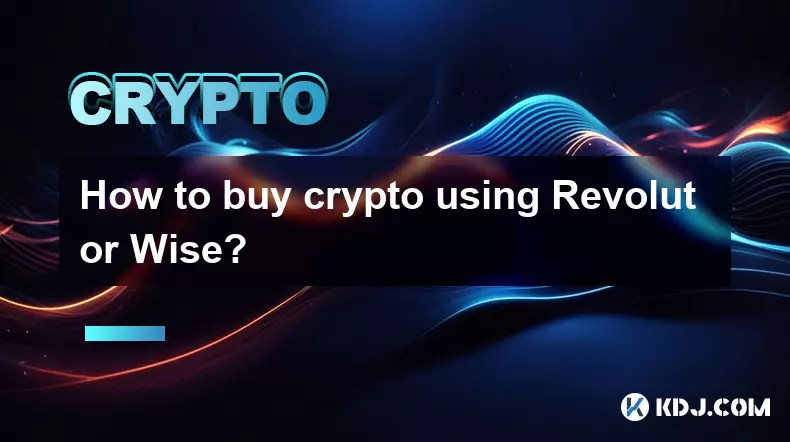
How to buy crypto using Revolut or Wise?
Jan 28,2026 at 11:00pm
Setting Up Your Revolut Account for Crypto Purchases1. Download the Revolut app and complete identity verification using government-issued ID and a se...

How to ensure your crypto purchase is safe from hackers?
Jan 28,2026 at 11:19pm
Secure Wallet Selection1. Choose hardware wallets for long-term holdings—devices like Ledger and Trezor isolate private keys from internet-connected s...

How to buy Avalanche (AVAX) with fiat currency?
Jan 29,2026 at 12:40pm
Choosing a Reliable Exchange Platform1. Identify exchanges licensed in your jurisdiction that support AVAX trading pairs with major fiat currencies li...

How to verify if an exchange has Proof of Reserves?
Jan 30,2026 at 06:39am
Understanding Proof of Reserves1. Proof of Reserves (PoR) is a cryptographic audit mechanism that demonstrates an exchange holds sufficient on-chain a...

How to leverage trade Bitcoin for beginners (Long/Short)?
Jan 29,2026 at 03:19pm
Understanding Bitcoin Price Movements1. Bitcoin’s price is heavily influenced by macroeconomic indicators such as interest rate decisions, inflation d...

How to set up an automatic savings plan with stablecoins?
Jan 29,2026 at 06:39am
Understanding Stablecoin Savings Mechanics1. Stablecoins are digital assets pegged to fiat currencies like the US dollar, designed to minimize volatil...

How to buy crypto using Revolut or Wise?
Jan 28,2026 at 11:00pm
Setting Up Your Revolut Account for Crypto Purchases1. Download the Revolut app and complete identity verification using government-issued ID and a se...
See all articles










































































